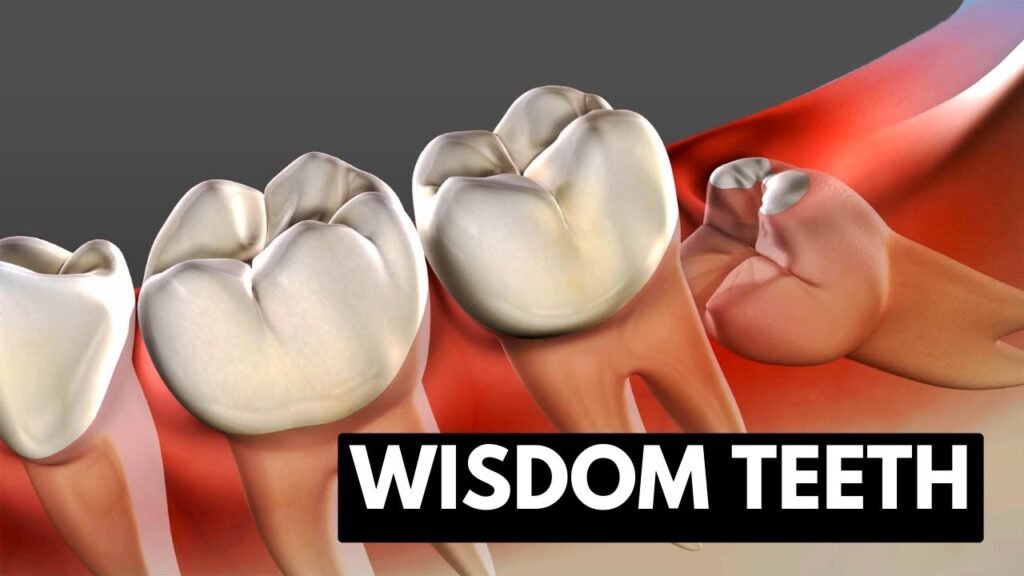Recognizing the Signs of Wisdom Teeth Emerging

Are you experiencing pain or discomfort in the back of your mouth? It could be a sign that your wisdom teeth are coming in. Wisdom teeth, also known as third molars, typically start to emerge in late adolescence or early adulthood. In this article, we will explore the common signs of wisdom teeth growth, potential complications, and when it may be time to consider extraction. Stay tuned for valuable insights on how to manage the arrival of your wisdom teeth.
- Jaw pain or stiffness
- Swelling of the gums
- Difficulty opening the mouth
- Bad taste in the mouth
How can you tell if your wisdom tooth is coming in?
If you start feeling tenderness or discomfort at the back of your mouth, it could be a sign that your wisdom teeth are coming in. This sensation may be on one or both sides and can be accompanied by swollen gums. It's similar to the feeling of adult teething, indicating that your wisdom teeth are starting to emerge. If you experience these symptoms, it's best to consult with a dentist to determine the best course of action.
How long is the typical duration for wisdom teeth to grow in?
Wisdom teeth typically take a few weeks to a few months to come through the gum, with some individuals experiencing them not coming in at all. Most commonly, wisdom teeth begin to emerge during the late teenage years or early adulthood. It is important to monitor the progress of wisdom teeth and consult with a dentist if any discomfort or issues arise during this process.
What is the sensation of wisdom tooth pain?
Experiencing wisdom tooth pain can be a throbbing or sharp sensation in the back of the mouth, often accompanied by tenderness and inflammation. As the wisdom teeth grow in, they can cause pressure and crowding, leading to discomfort and difficulty in chewing. If left untreated, this pain can radiate to the ears and head, making it crucial to seek dental care for relief and proper management.
A Guide to Understanding Wisdom Tooth Symptoms
Are you experiencing pain and discomfort at the back of your mouth? It could be a sign that your wisdom teeth are causing trouble. Wisdom tooth symptoms can include pain, swelling, and difficulty opening your mouth. If you are experiencing any of these symptoms, it is important to consult with a dentist to determine the best course of action.
In addition to pain and swelling, impacted wisdom teeth can also lead to infection and damage to surrounding teeth. It is crucial to pay attention to any changes in your oral health and seek professional advice if you suspect that your wisdom teeth are causing problems. Understanding the symptoms of wisdom tooth issues can help you take proactive steps to address the issue before it becomes more serious.
In conclusion, being aware of the symptoms associated with wisdom teeth can help you take control of your oral health. Don't ignore any pain or discomfort at the back of your mouth – it could be a sign that your wisdom teeth are causing problems. By seeking professional guidance and understanding the symptoms, you can effectively address any issues with your wisdom teeth and prevent further complications.
Spotting the Telltale Signs of Emerging Wisdom Teeth
Are you experiencing jaw pain, swelling, or difficulty opening your mouth fully? These could be telltale signs that your wisdom teeth are starting to emerge. It's important to keep an eye out for these symptoms, as emerging wisdom teeth can cause discomfort and even lead to serious dental issues if left untreated. If you notice any of these signs, it's essential to consult with a dentist to address the situation before it worsens. By spotting the telltale signs of emerging wisdom teeth early on, you can avoid potential complications and maintain your oral health.
Wisdom Teeth Alert: Recognizing the Early Warning Signs
Are you experiencing jaw pain, swelling, or difficulty opening your mouth fully? These could be early warning signs of impacted wisdom teeth. It's crucial to recognize these symptoms and seek prompt dental care to prevent potential complications such as infection or damage to surrounding teeth. Don't ignore the signs - schedule a consultation with your dentist today to address any concerns and ensure your oral health is in tip-top shape.
Overall, recognizing the signs of wisdom teeth growing in is crucial for maintaining oral health and preventing potential complications. By being aware of symptoms such as pain, swelling, and difficulty opening the mouth, individuals can take proactive steps to address any issues early on. Seeking advice from a dental professional and following their recommendations can help ensure a smooth and comfortable transition as wisdom teeth make their appearance. Remember, staying informed and proactive is key to promoting a healthy smile for years to come.